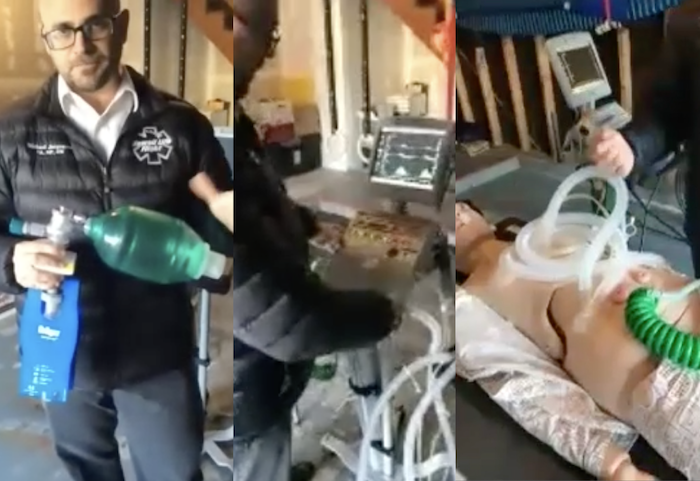Healthcare Heroes
CSU Monterey Bay can count many of our own among the healthcare heroes on the frontlines battling the COVID-19 global pandemic. College of Health Sciences and Human Services (CHSHS) students are working and volunteering in our region and across the country during the ongoing crisis.
/filters:quality(75)/0x30:600x383/prod01/channel_2/media/csumb/news/lQYbDxIDTLKxLJrgYRyt_Hero_1600X1000px_healthcare1.png)
CSUMB students, faculty among medical workers fighting COVID-19
By Sophia Huang McKenzie
CSU Monterey Bay can count many of our own among the healthcare heroes on the frontlines battling the COVID-19 global pandemic. College of Health Sciences and Human Services (CHSHS) students are working and volunteering in our region and across the country during the ongoing crisis.
Students in the Master of Science Physician Assistant (MSPA) program have joined hospital volunteer corps. Nursing students are working in medical care facilities throughout California’s Central Coast. Public health students are involved with contact tracing for COVID-19 patients. Social work students are helping people in need of services, including the homeless in the Chinatown neighborhood of Salinas.
"The impact of President Ochoa's visionary effort to establish the College of Health Sciences and Human Services in 2014 is being experienced in our region now more than ever,” Dean Britt Rios-Ellis said. “These students are being led by an incredibly dedicated group of highly-qualified faculty. I simply couldn't be prouder of the cumulative efforts of CHSHS."
MSPA Virtual Training

Photo by: Michael B. Jorgensen Screenshots from Jorgensen's training video.
To prepare MSPA students to help in multiple capacities — including airway management, suctioning, and equipment assembly — faculty instructor Michael B. Jorgensen scrambled to put together a virtual training “boot camp.”
Approximately 75 percent of the 29 students in the MSPA program’s inaugural cohort have signed on to serve in hospital volunteer corps.
“The overwhelming majority of our class intend to head to the field. Many are already there, including one in New Jersey and two others in Texas who plan to go to New Orleans, Jorgensen said.
“I’m extremely proud to play a part in this effort, but not as much as I’m proud of our PA students who are volunteering to do what PAs do best, and that is preserve life.”
I’m extremely proud to play a part in this effort, but not as much as I’m proud of our PA students who are volunteering to do what PAs do best, and that is preserve life.”— Michael B. Jorgensen, MSPA instructor
Natividad Medical Center in Salinas loaned Jorgensen a commonly-used ventilator for 24 hours. Jorgensen conducted the online training for senior students from his garage at home.
He familiarized them with setup, use, and troubleshooting of the ventilator. He also disassembled and photographed key parts of a respirator so students could virtually practice assembly.
The Boot Camp continued for at least a week in April. It included training on management of Acute Respiratory Distress Syndrome (the leading cause of death from COVID-19), fluid management for shock, and morgue protocols. The sessions were recorded and can be used as virtual training for any group of medical professionals who may need an orientation or refresher course.
Jorgensen said he received tremendous support from others, including Rios-Ellis and MSPA Program Director Christopher Forest, who both participated in the virtual training sessions. One student, a former flight paramedic, provided an airway mannequin. Another student who is a former coroner’s assistant gave a presentation on managing fatalities.
Nurses on Frontlines
The 89 students enrolled in CSUMB’s Bachelor of Science in Nursing (BSN) program already hold associate degrees from community colleges and are working nurses in Monterey, Santa Cruz, San Benito, Santa Clara and San Luis Obispo counties.
They are employed in various units in hospitals including the intensive care unit, the emergency department and surgical services, as well as in various community settings. This includes school districts, public health departments, skilled nursing facilities, jails and clinics, said Alyssa Erikson, associate professor and interim chair of the Department of Nursing.
The current COVID-19 crisis has shown how nurses provide essential work to the health of a community. It's not easy during normal times to juggle work demands, family responsibilities and academics, but especially challenging during a pandemic.”— Alyssa Erikson, Department of Nursing interim chair
“The current COVID-19 crisis has shown how nurses provide essential work to the health of a community. It's not easy during normal times to juggle work demands, family responsibilities and academics, but especially challenging during a pandemic,” Erikson said.
“Despite this, nurses in our BSN program have demonstrated grit, commitment and compassion to progress towards graduation, and I speak for the faculty in saying that we're very proud of their success.”
News Information
- Published
- April 17, 2020
- Department/College
- University News
